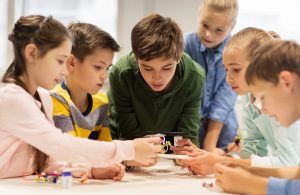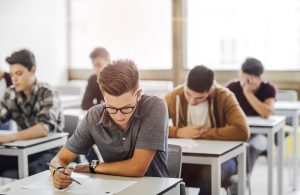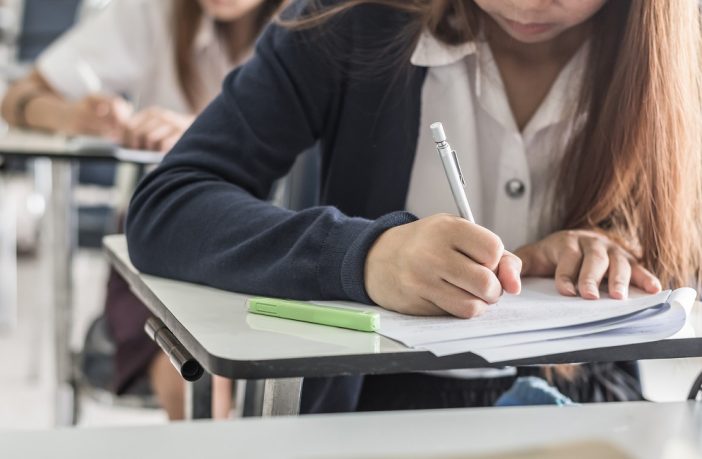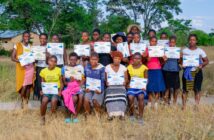Professor Peter Twinning, Professor of Education (Futures) at The Open University discusses why the UK’s school system needs to change.
Traditional models of schooling are based on a desire for standardisation and compliance, for a mass of industrial age ‘production line’ workers (with the majority of the small number of leaders and thinkers coming from elite private schools). Today, what we need from schools is very different because of the challenges facing the world:
- global warming;
- population growth and ageing populations;
- exhaustion of finite global resources (e.g. fossil fuels, land for growing food);
- threats to employment from automation;
- moral and ethical issues associated with digital technology (e.g. data privacy, surveillance culture) and biotechnology (e.g. should genetic engineering be allowed?);
- the rapid and accelerating pace of change;
- and a growing gulf between the very rich and everyone else.
These feed societal tensions and increase the possibilities for conflict.
Schools need to be preparing individuals who can tackle these challenges, and that leads to both individual fulfilment and universal wellbeing.
 Rather than focusing on standardisation and compliance schools today need to be equipping young people with the skills, knowledge and attributes that are often (mistakenly) labelled as ‘21st century skills’. These include such things as: collaboration, communication, problem solving, creativity, digital literacy, learning to learn, empathy, intercultural understanding, flexibility, resilience, and persistence.
Rather than focusing on standardisation and compliance schools today need to be equipping young people with the skills, knowledge and attributes that are often (mistakenly) labelled as ‘21st century skills’. These include such things as: collaboration, communication, problem solving, creativity, digital literacy, learning to learn, empathy, intercultural understanding, flexibility, resilience, and persistence.
These skills and attributes can only be developed through a deep engagement with ‘knowledge’ (or more accurately with information). They require a rethinking of the curriculum, assessment and how we teach young people.
Handfuls of schools around the world are trying to address these challenges in different ways. For example:
- Elon Musk (of Tesla fame) set up the elite Ad Astra school where they don’t teach music, sport or foreign languages; they have a very high teacher to student ratio; students work in teams, there are no grades, and the focus is very much on entrepreneurship, real science, engineering and AI.
- AltSchool is using digital technology to help “educators create personalised, foundational knowledge and project-based learning experiences focused on developing the whole child”.
- High Tech High emphasises equity and adopts a learner-centric approach that focuses on authentic work through fieldwork, community service, internships, and consultation with outside experts. Learning happens through collaboration, small-group work and projects.
- Big Picture Schools focus on personalised, authentic, family and community connected work and project-based learning. Strong trusting relationships are developed by having around 17 students supported by an advisor, who stay together for four years. Students are assessed through public displays and ‘real world standards’.
What all of these models seem to have in common are a shift towards project based learning and real-world engagement informed by the learners’ interests and ambitions.
 On a smaller scale many schools are developing maker spaces which provide opportunities for students to develop ‘21st century skills’ through collaborative problem solving, as they create physical and/or digital artefacts (often integrating subjects across the curriculum and helping to make meaningful connections between school work and ‘real world’ issues).
On a smaller scale many schools are developing maker spaces which provide opportunities for students to develop ‘21st century skills’ through collaborative problem solving, as they create physical and/or digital artefacts (often integrating subjects across the curriculum and helping to make meaningful connections between school work and ‘real world’ issues).
However, these schools are still the exception. The major obstacles to change lie in:
- our assessment and accountability systems which focus on traditional academic outcomes
- professional standards for teaching and initial teacher training that are based on traditional, industrial age models of schooling
- fear on the part of politicians (whose main concern is re-election)
The last of these three may be the most challenging – and will rely on shifts in public opinion (i.e. your opinion) and politicians who understand and care about our children’s futures.
Find out more
For further thoughts about schooling visit Peter’s blog at halfbaked.education



